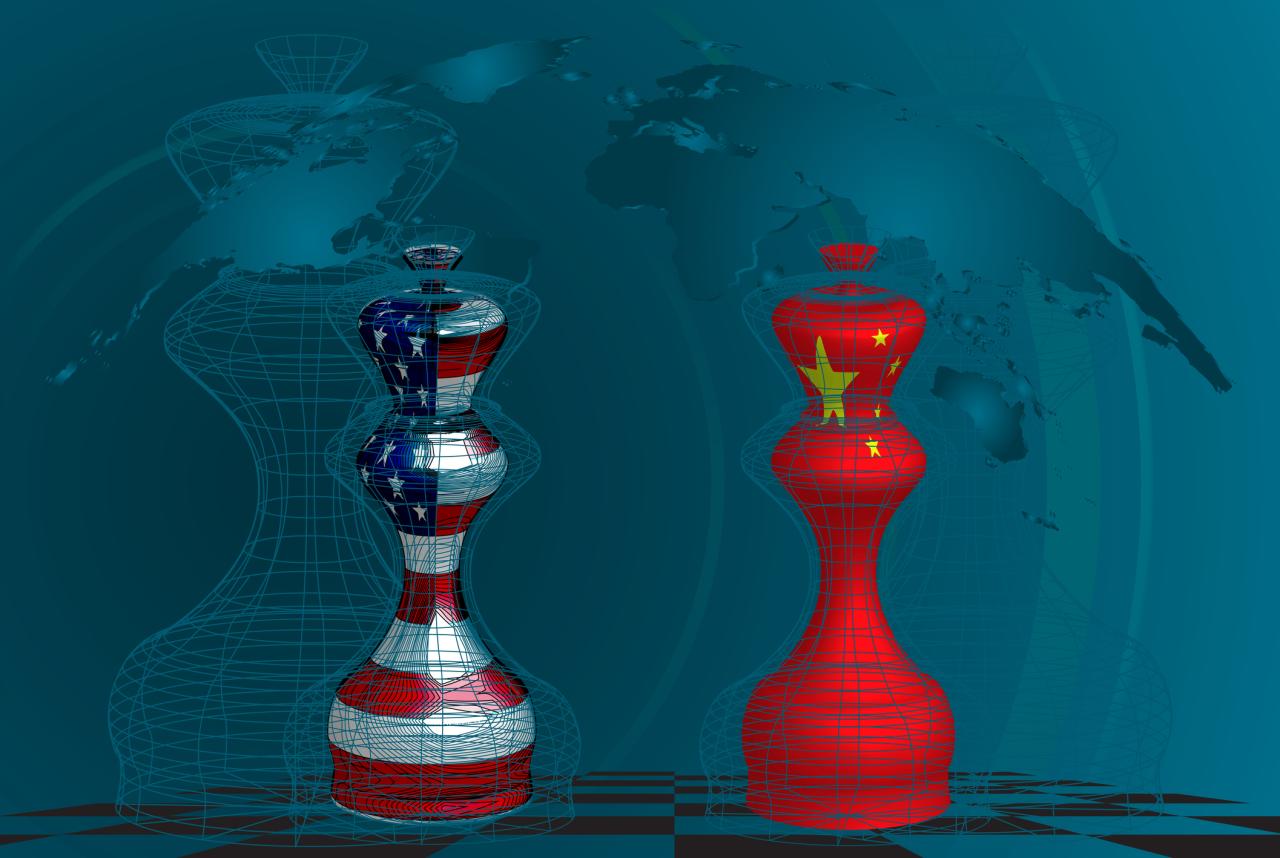
Tensions between China and the United States have escalated rapidly in recent weeks. Yet while the pace of events may have picked up, the deepening of conflict per se between the two countries does not come as a surprise. Drawing on the leading theories of international politics, realism and liberalism, I concluded in January 2017 that “the relationship between the two countries will be conflictual. All-out war seems unlikely but is possible, while a renewed Cold War scenario may well materialise.”
Some two years later, in October 2018, US Vice-President Mike Pence declared Cold War on China.
Meanwhile, the factors leading to my earlier conclusion, and Pence’s declaration, remain firmly in place and have gathered strength. China has continued to gain economic and military strength relative to the US, a development that would lead adherents of realism to expect conflict or even war. Viewed through this lens of relative power, the current trade war with China makes perfect sense: the US may incur economic losses because of it, but as long as China loses relatively more, the US comes out ahead.
At the same time, the kinds of conflicting interests proponents of liberalism worry about have multiplied, at least in the public eye. As before, clashes over territory (e.g. South China Sea, Taiwan, Senkaku/Diaoyu Islands) continue, and trade issues remain firmly on the agenda.
But we now also see the US ramp up its response more generally, offering a “whole-of-society response” to what the FBI Director Christopher Wray has described as a “whole-of-society threat”. Take the example of technology. Reacting to the Made in China 2025 plan, which seeks to establish Chinese leadership in high technology, the US has strengthened restrictions on M&A by Chinese firms, tightened visa rules for Chinese students and scholars in technologically sensitive areas, and imposed sanctions on leading Chinese technology firms (Huawei) that may threaten their viability. We also know that the US government is working on new export control rules for technology. The overall impact of these developments is not only to multiply points of friction. Paired with the trade war, they also weaken economic interdependence and, with it, a mechanism known as “commercial peace” that might otherwise have constrained conflict.
The global scenario
The Cold War Pence declared now seems to be taking form rapidly. What might the end game look like? Late last year and early this year, I posed the following scenario in a survey of 109 international board directors supported by the INSEAD Corporate Governance Centre:
Suppose the world entered a new Cold War with the United States on one side and China, on the other.
The United States has carved out a sphere of influence similar to that in the previous Cold War, though with weaker control of South America and with most of Eastern Europe on its side.
China’s sphere of influence comprises most Asian nations, with the notable exceptions of India, which is non-aligned but leaning towards the US, and Japan, as US ally.
Africa and South America have again become a stage for proxy wars in which forces sponsored by the two sides fight over control of countries. The same applies to the Middle East, though the development of renewables and US energy independence mean that access to Middle Eastern oil is much more important to China than the United States.
Russia is not aligned with either bloc but leans towards China.
Trade and investment flows between the two blocs are curtailed or even outlawed. Both sides are concerned about leaking technological know-how.
Almost three-quarters of directors in primary industries and manufacturing, and about half of those in services, believed this scenario was likely even at that point. A majority across sectors indicated that this would have a negative or very negative impact on their businesses. However, only 20 percent reported that their firms had taken meaningful countermeasures at that point.
Given the escalation since, finding suitable countermeasures is likely to have taken on new urgency. In the survey, directors suggested two major forms of response: withdrawal to one sphere of influence or high levels of decentralisation so as to be able to operate in both spheres.
We are clearly seeing evidence of withdrawal strategies being implemented, on both sides of the divide. Chinese foreign direct investment in the US seems to have dropped 73 percent last year alone. US and other Western firms are moving operations to other parts of Asia or to the Americas, following a new approach known as “ABC”: Anywhere But China. Such withdrawal will come at the expense of smaller reach and higher costs from foregone supply chain optimisation.
The challenges of decentralisation
The major alternative, decentralised operations across both spheres, could help maintain overall reach and cost advantages. However, it is not clear whether it is feasible. In my recent contribution to Harvard Business Review, I identified five major conditions for executing such a strategy successfully:
- Increased localisation of operations must be feasible.
- Headquarters must retain a minimum of control.
- Continued operations in the other sphere must be legal.
- Property rights must be reasonably secure.
- Profit repatriation must be possible.
There are question marks hanging over each and every one of these points under current conditions. For instance, more localisation means less scope for locating company activities where they are done best; legal restrictions may impede headquarters control over company resource deployment, such as technology; either country may legally prevent their own firms from operating in the other; governments have countless ways of effecting expropriations; and stronger (China) or new (US) currency controls may curtail remittances.
In light of these challenges, a decentralisation strategy is likely to require exceptional levels of strategic clarity and operational discipline. It seems doubtful that this approach will be mainstream.
Either way, it seems likely that the current conflict will reinforce the general trend towards de-globalisation.





Anonymous User
15/06/2019, 08.53 pm
Great analysis!